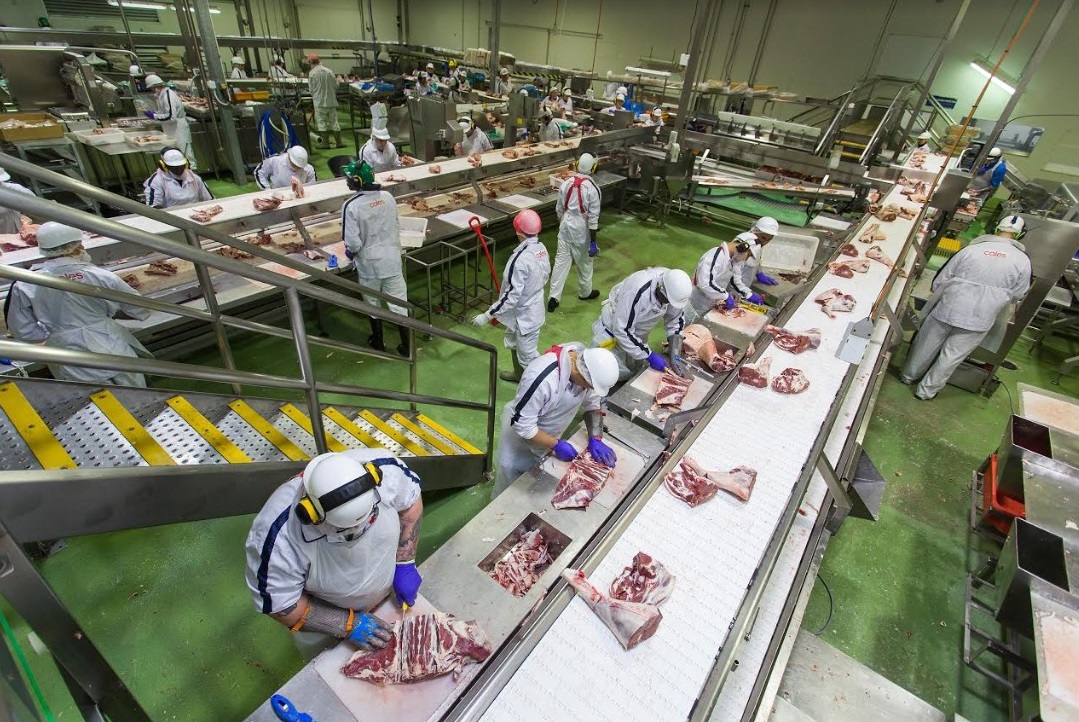
Australian Lamb Company wants energy policy changes.
MAJOR Victorian processor Australian Lamb Company has employed solar technology and joined an energy purchasing group to counter a more than doubling of its power costs last year.
However, despite these developments, as a member of the Australian Agricultural Manufacturers Alliance, ALC has joined an industry call for governments to commit to significant energy policy, market structure and rule changes.
In the 2017 calendar year, ALC’s energy costs — electricity and gas — increased by over 100 percent compared to 2016. This represented an increase of over $1.2 million in cost to the company’s bottom line.
Last year, ALC also joined the Eastern Energy Buyers Group, which won approval from the Australian Competition and Consumer Commission to undertake a tender process covering the supply of electricity, gas and gas transport services to members. No details on the progress of the group are available.
ALC is a leading lamb and mutton processing company based in Colac, in regional Victoria, and Sunshine, in western Melbourne with a workforce of 820 employees across the two locations.
To help mitigate the rising electricity costs, ALC chief financial officer Dale Smith, said the company also implemented a $3 million Solar Panel project across its Colac and Sunshine sites to cover 25pc of its electricity needs.
“The payback on this investment is 6-7 years, which is well below the payback on other projects we could invest in.
“However, we felt as a business we need some certainty (which is not available in the current regulatory environment) and cannot incur continued unanticipated price increases such as what we have experienced,” he said.
The company operates an export-accredited, fully-integrated processing facility with a capacity of 60,000 lambs per week. ALC is the leading employer in the township of Colac with over 80pc of ALC Colac groups products exported to 60 countries.
“ALC and other Australian processors are competing against other countries such as New Zealand where the price of gas is approximately one third of what we are paying.
“For our gas supply we have no ability to negotiate because there is only one supplier,” Mr Smith said.
“The increased energy costs we have recently incurred, and continue to incur, means there will be more times during the course of the year we will need to reduce hours and therefore jobs as the company cannot make the margins we need to continue operating.”
Energy costs are a concern for red meat processors
The Australian Meat Industry Council said energy cost and supply is the most significant and pressing concern for the Australian red meat industry, which is dealing with increasing costs, limited energy competition and limited ability to implement cheaper and more sustainable options.
AMIC chief executive officer Patrick Hutchinson said the development of government policies that ensure the reliable availability of energy to all sectors of the Australian economy, including the red meat processing sector, are urgently needed.
AMIC is the peak council representing retailers, processors and smallgoods manufacturers and is the only industry association representing the post-farmgate Australian meat industry.
“A reliable supply of affordable energy is a national necessity and should be a priority for the Federal and State Governments.
“Endless squabbling and backflips serve no one. We need good solutions and we need certainty,” he said.
“Red meat processing is an energy-intensive activity.
“Sharp increases in the cost of energy in Australia are putting significant pressure on the ability of processors to remain profitable.”
Mr Hutchinson said members are coming to him every day with concerns around energy supply and cost.
“The concerns for rising energy costs are not isolated to the red meat industry but across the whole post-farmgate supply chain.
“The Australian Agricultural Manufacturers Alliance (AAMA), which represents the shared interests of agri manufacturers, has created a list of five key priorities, with energy right at the top,” Mr Hutchinson said.
“The AAMA alliance was created to represent the shared interests of agri manufacturers and contribute to recognition, growth and sustainability of the sector.
“On behalf of our members we are calling on government to commit to the supply of energy from an effective, competitive market, without monopoly behaviour, including in remote areas,’ he said.
“The government needs to prioritise a review of the market structure and market rules for energy supply, with an ideal outcome being the limitation of the ability of energy suppliers to game the market.
“It also needs policies that encourage the meat industry to innovate in its energy investments, especially in regional environments.”

HAVE YOUR SAY